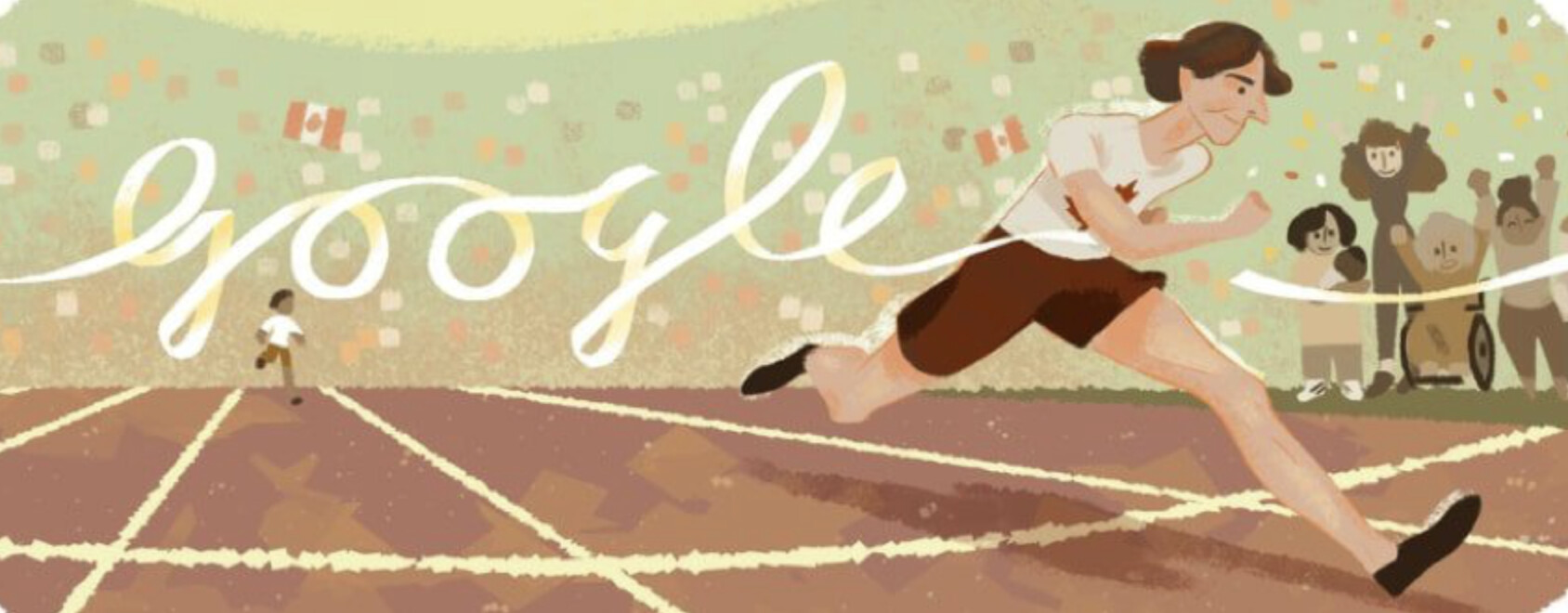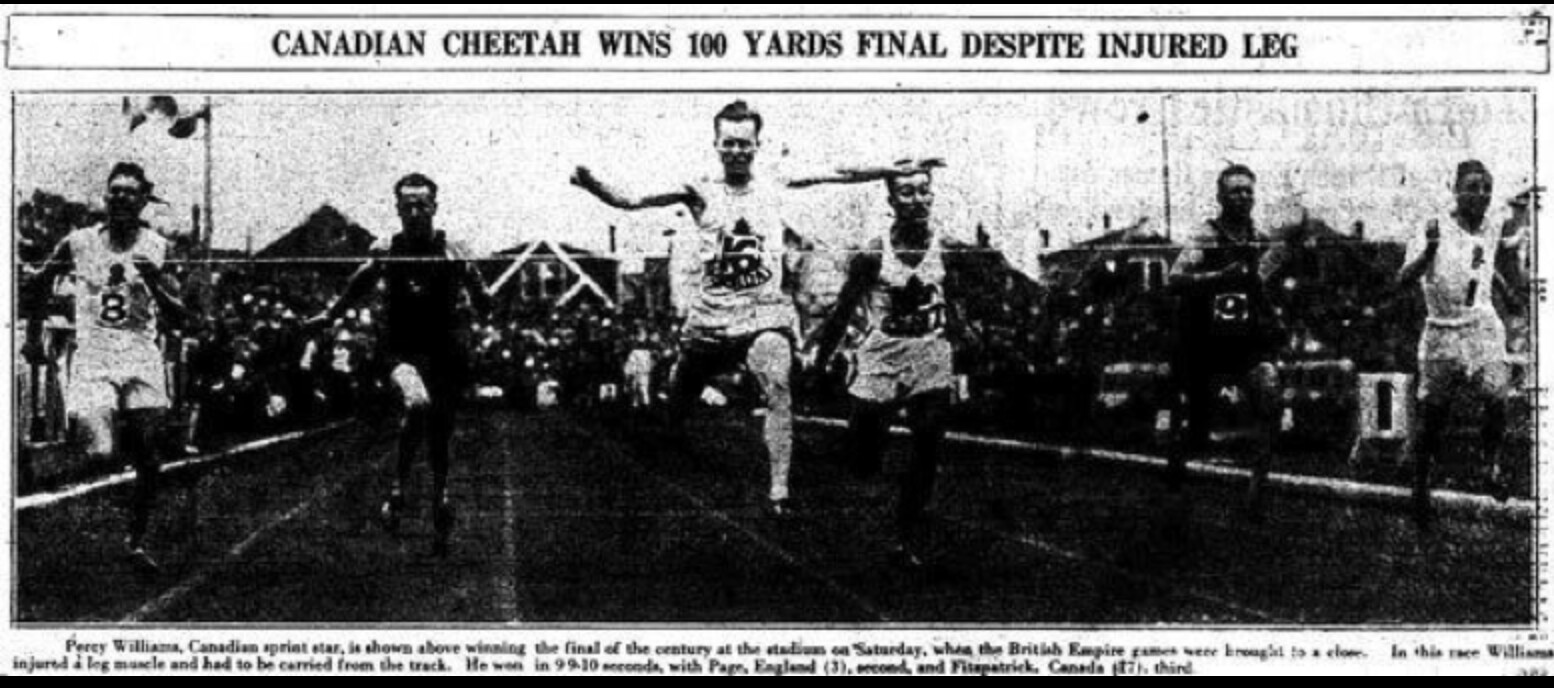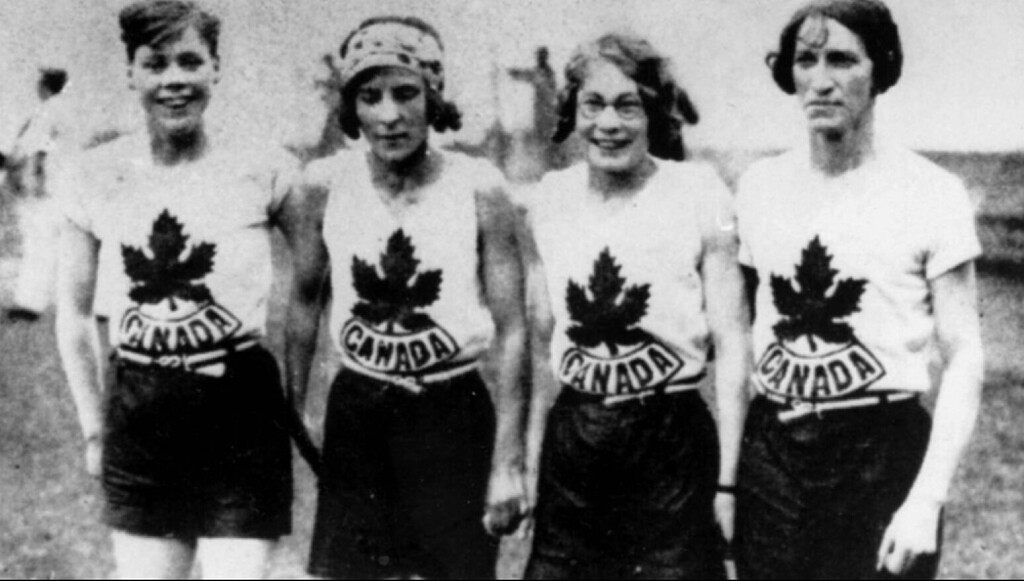Running News Daily
Running News Daily is edited by Bob Anderson. Send your news items to bob@mybestruns.com Advertising opportunities available. Train the Kenyan Way at KATA Kenya and Portugal owned and operated by Bob Anderson. Be sure to catch our movie A Long Run the movie KATA Running Camps and KATA Potato Farms - 31 now open in Kenya! https://kata.ke/
Index to Daily Posts · Sign Up For Updates · Run The World Feed
Track star gets Google Doodle on her 118th birthday
Fanny “Bobbie” Rosenfeld of Barrie, Ont., was one of the Canadian stars of our nation’s most successful Olympics, in Amsterdam in 1928. That year, Canada won three gold, two silver and two bronze medals: Rosenfeld helped the squad win gold in the 4x100m relay, and also took silver in the 100m. Today would have been her 118th birthday, and to mark the occasion, Google Canada has honoured Rosenfeld with a Google Doodle–the daily illustration on Google’s main page, with a link to their story.
Rosenfeld, nicknamed “Bobbie” because of her short, bobbed hairstyle, was a well-rounded athlete, excelling also in hockey, softball, basketball, tennis and lacrosse. She was born in Russia in 1904, and died in Toronto in 1969, at age 65. At 18, her family moved from Barrie to Toronto, where she attended Harbord Collegiate Institute. When her competitive career was over, she became a sportswriter for the Globe and Mail and an advocate for women’s sports.


1928 was the first year that women were allowed to run in Olympic track and field events, and the Canadian women took more medals than any other nation. Rosenfeld’s teammates in the relay were Smith, Jane Bell and Myrtle Cook. In addition to Rosenfeld and the women’s relay team, these Canadians earned medals: Percy Williams (gold in the 100m and 200m), James Ball (silver, 400m), Ethel Smith (bronze, 100m) and the men’s 4x400m relay (bronze for Ball, Phil Edwards, Stanley Glover and Alexander Wilson). In addition, Ethel Catherwood of Regina won gold in the high jump, in a world record.
In his 2022 book Running Through Time: the Greatest Running Stories Ever Told, author Roger Robinson recounts the appalling story of the women’s 800m, which also included Rosenfeld (who finished fifth; the race was won by Germany’s Lina Radke in 2:16; Jean Thomson of Penetanguishene, Ont., was fourth).
The 800m is widely considered one of the most difficult track events. With two full laps of the track at top speed, the 800m is not a true sprint, but neither is it a pure middle-distance race, but something in between. Athletes must conserve just enough energy after the first lap and a half to sprint hard for the final 200m; if they miscalculate and surge too early, they risk being swallowed up by the pack and finishing dead last.
As new as it was for the women competing in Amsterdam, several collapsed at the finish line, having given it everything they had. But the spectacle of young women lying on the track after the very first Olympic 800m race was too much for spectators and officials, who, after the Games were done, successfully had the event banned from future Games. It didn’t return until 1960. Worst of all, Canada itself was one of the 12 nations that voted for the ban; in fact, Canada voted to ban women from all track and field events (but was outvoted).
In the book, Robinson says: “The stories of mass collapse and distress, amazingly consistent across many international news reports, were fake news, hugely exaggerated, often grossly inaccurate … None failed to finish. Four or five fell to the grass at the finish, yes, but they had just run massive personal bests; two were sprinters racing their first big 800.
“The litany of lies concealed the truth that the race was a great leap forward in women’s running. The first three broke the recent world record, and the first seven (yes, seven) ran faster than the officially ratified world mark at that date, including two Canadians. That race deserves a revised place in history, not as evidence of women’s weakness, but as a major breakthrough in elite athletic performance.”
by Running Magazine
Login to leave a comment




